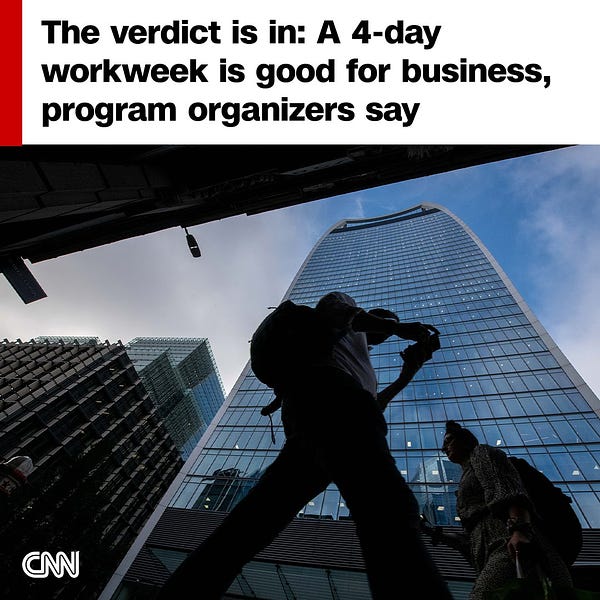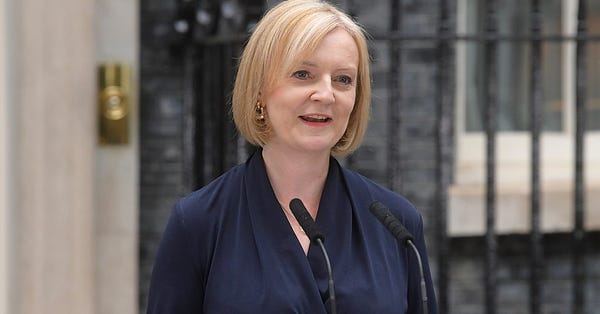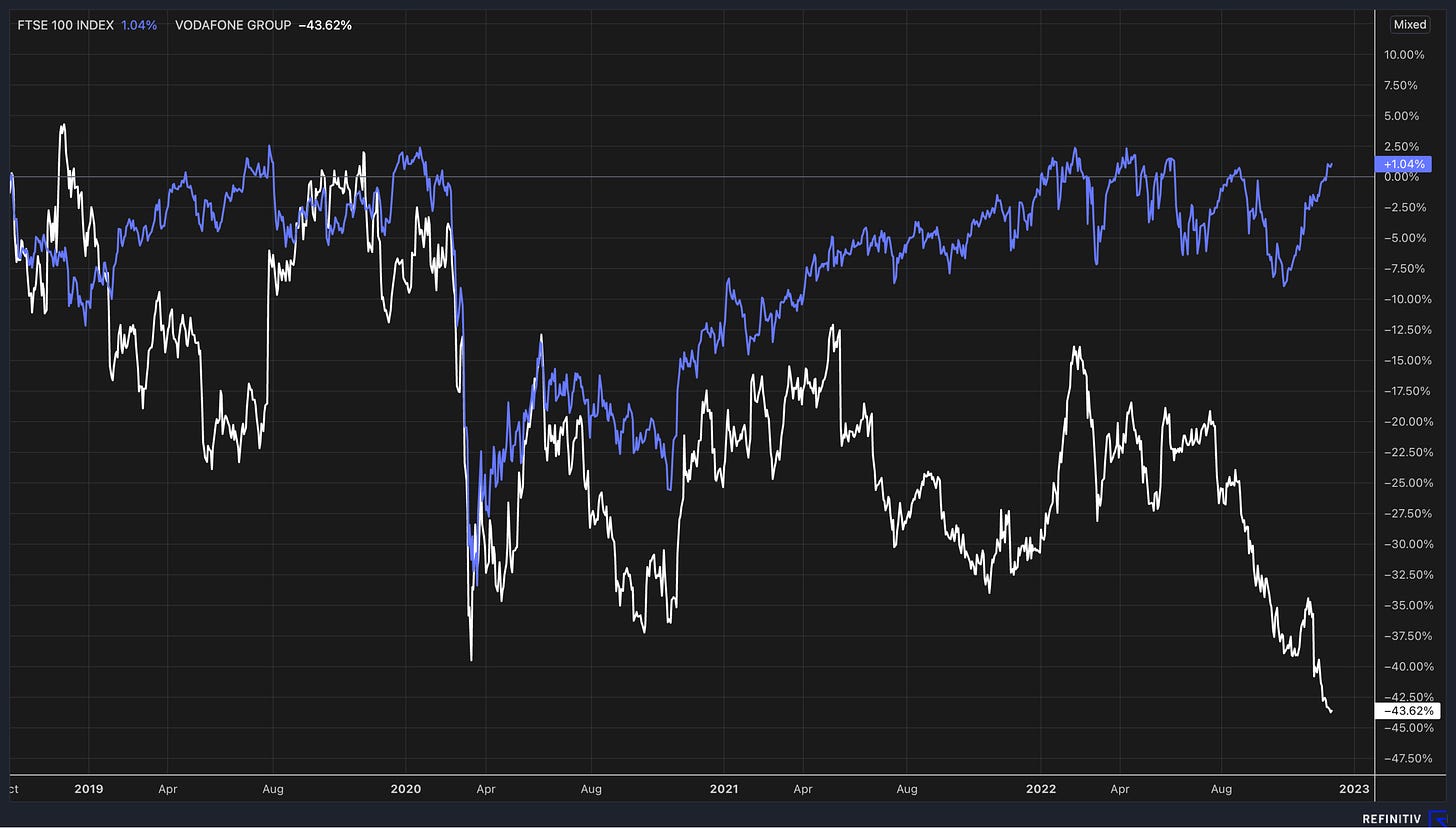Is a four-day week the future?
A look at four-day week trials + Vodafone + Other stories that matter
Hello and welcome to Off to Lunch. If this is your first time reading, you can sign-up below to get all editions emailed to you and get notifications when our podcast episodes are launched…
I wanted to start today by looking at the four-day working week. More and more data is emerging about the pros and cons of a four-day week. A six-month trial in the UK involving 70 businesses is scheduled to deliver its findings in February. In the meantime, The Financial Times has spoken to four businesses involved and produced a piece that offers some interesting insights into the positives and negatives. The positives include attracting new staff, improvements in physical and mental well-being, and more focused working. But there are negatives too, such as the amount of planning that is required to ensure that productivity matches a five-day week, some staff being unsettled by the added scrutiny on how they spend their working day and difficulties in measuring productivity. Two of the businesses said that some staff were still doing some work on the fifth day of the week, although this was as little as taking an important call or working a couple of hours.
You can read the full FT piece here.
Trials are also taking place in other parts of the world, such as Ireland…

And the US…


Unilever, the consumer goods giant, piloted a four-day week in New Zealand and last month said it was expanding the scheme to Australia. It started the New Zealand pilot in December 2020 and said that 67 per cent of employees had reported a better work-life balance.
Unilever said its Australian business would take lessons from the New Zealand trial such as “using existing technology and new tools to support more efficient work practices” and “less frequent but more efficient meetings, fewer emails and the adoption of technology such as MS Teams”. Unilever has said it has “no plans” at present to expand the trial to other countries. But this is a company with nearly 150,000 employees around the world, so it will be important to track what its findings are and what it does next.
Looking at the findings of the trials so far and the FT piece it is interesting to see some of the negatives of the four-day week emerging, such as the planning required and the intensity of the work. Also, some of the positives reported - such as the ability to attract and retain staff - will be diluted as more businesses adopt a four-day week.
Nonetheless, it is clear that a significant proportion of employees prefer it. That means some businesses will see it as a tool to attract staff and a competitive advantage.
Even if the four-day week does not expand beyond the trials and more businesses continue to ask staff to come back to the office post-Covid rather than allow working-from-home, it is clear that the trend is for the working week to become more flexible, not less. Technology now allows this and the Covid-19 lockdowns showed it was possible. The government has taken a small step to engrain this into law by confirming it has tabled legislation that will allow staff to ask to work from home or work part-time as soon as they start a new job, rather than waiting six months, as they do at present. There is, however, no obligation for businesses to accept the request. Full story here.
Podcast…
A reminder that the latest episode of our Business Studies podcast - “The founder who has promised never to sell” - is available on Substack here, Apple here, Spotify here and also on all other podcast platforms. You can find bonus content from the episode, in with Richard Tang talks about his mistakes and advice for other founders, here.
The next episode of Business Studies will go live tomorrow and you won’t want to miss it. I talk to Roger Madelin, the former boss of Argent and now at British Land, about how he led the transformation of King’s Cross in London - one of the UK’s most successful regeneration projects - and how he is trying to do it all again at Canada Water. Off to Lunch subscribers will be notified when the episode goes live….
Other stories that matter…
The boss of Vodafone, Nick Read, is leaving. According to a statement from the FTSE 100 company he has “agreed with the board that now is the right moment to hand over to a new leader who can build on Vodafone's strengths and capture the significant opportunities ahead". Read will step down on December 31, with chief financial officer Margherita Della Valle becoming interim chief executive. Read will be paid another year’s salary, reflecting his 12-month notice period, as well as £7,000 for “legal fees incurred in connection with his departure” and £50,000 for “outplacement support”. A quick Google search shows that outplacement support is “provided by organisations to employees affected by redundancy, helping them to confidently navigate the job market and transition into new roles quickly and effectively”. That’s what “outplacement specialist” Renovo says, anyway. Hopefully that last quote helps you understand what has happened here. If Read was a Premier League football manager, we would be writing that he was sacked…Vodafone has noticeably underperformed the FTSE 100 since Read was promoted to the job in 2018 - check out the graph below - and has been under pressure from activist investors over its performance (The Times and Vodafone statement)
FTSE 100 (blue) v Vodafone (white) since Read started as chief executive
A former Boddingtons Brewery site in central Manchester has been bought for £195 million and is earmarked for a big residential, office, retail and leisure development (Business Live)
Hong Kong has the best public transit system in the world. London is tenth, according to this study from Oliver Wyman (Bloomberg CityLab)
Is Shein Exchange the future of fashion retail and the definitive place to buy and sell second-hand clothes? According to this review, probably not (The Information)
The highly-regarded boss of Sky News, John Ryley, is standing down after 16 years in the role (The Guardian)
Finally, check out Off to Lunch’s Sunday press review for a round-up of what mattered in the Sunday papers. Paying members got this yesterday, you can sign-up to read it and get next week’s here.
And finally…
A podcast recommendation for you. Check out the latest episode of Archive on 4 on the BBC, where Nick Robinson looks at the downfall of Liz Truss and tries to make sense of what happened and why…


Thanks for reading. If you enjoy Off to Lunch then please share it with others and spread the word. If this newsletter was shared with you then please sign-up below to become a member, get Off to Lunch sent directly to your inbox, attend our forthcoming events and contribute to the work of Off to Lunch
Best
Graham








Intrigued by the 4 day week discussion. Big Oil have had 9 day fortnight working for years - isn't this just the next iteration?